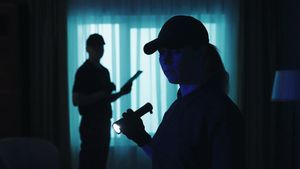Film lovers unite! The American Film Institute Festival is under way with must-see films and performances in Breakthrough, World Cinema, New Auteurs, and Short Film categories, just to name a few. With a program of 133 selections and 11 sections, this year's festival, which opens today, has something for everyone. Tickets are free and available here from now till the last day of the festival, November 8.
Jacqueline Lyanga directs the festival for her third year and delivers the cream of the crop yet again. Lyanga's genuine love of film shines through in her work and gives the festival a fresh perspective that sets it apart from other big-name film festivals driven by premiere status. The AFI Fest welcomes films that have gained critical acclaim as well as others with mixed reviews that Lyanga considers equally relevant to film history. She took a break from planning the last-minute touches to the fest to talk with The Advocate about the films she's most excited for audiences to see, this year's LGBT selections, and her favorite part of the festival.
The Advocate: Out of 3,400 considerations, 133 films were selected for this year's program. How do you begin your screening process of narrowing it down to the best selections?
Jacqueline Lyanga: There's sort of a two-fold process. There's the process of where we start at Sundance, myself and Lane Kneedler, who's the director of programming, will start looking at films in January and go to Rotterdam, Berlin, South by Southwest, Tribeca, Cannes, Locarno, Telluride, and Toronto. We'll be at those festivals screening all day long. We're in the process of watching anywhere from five to seven films a day, and then we also take submissions, so we'll have submissions sent in from filmmakers, producers, alumni, sales agents. We have a screening committee, we have associate programmers, we have two other programmers who work with us as well who intersect from the festival side and looking at submissions. We start by going through that process and then have a lot of meetings and talk about the films that we love. We bring in our programmers and talk about the films that really stood out for us, and going through all of those films really enables us to contextualize the year, which is ultimately our goal. So you know we've shifted, we're not a festival that focuses on premiere status. We do have North American premieres and we have U.S. premieres, primarily from films that we caught toward the end of the year -- from festivals like Locarno or Toronto. If a film has already played at South by Southwest, that doesn't disqualify it. We're looking for the best films of the year as much as we can. So really, it opens up the possibilities. It makes the competition really tough and tight, considering the number of films we show, but it also means that it's a really great place for the audience to come and see.
 Out of the LGBT-themed films, which ones are you most excited about audiences seeing this year?
Out of the LGBT-themed films, which ones are you most excited about audiences seeing this year?
There's such a range, it's wonderful. From Raul Fuentes's Everybody's Got Somebody ... Not Me (pictured at left), which is a lesbian drama, black-and-white, really influenced by American independents and then in some ways, Italian '60s films, music and the energy, a little French New Wave influence in that film. Also, Laurence Anyways, Xavier Dolan's new film, he's kind of this dear old French-Canadian wunderkind who made Heartbeats, which we showed last year, and I Killed My Mother, which we also showed, in 2009. It's this wonderful love story about this man and this woman, and the man decides to transition to a woman, but they're still passionately in love with each other and trying to figure out how to have a relationship and how to continue that relationship.
I was really thrilled about that feature. Why do you think Laurence Anyways was worthy of selection?
It's just so rich, it's like a novel. It has the energy of youth that really drives it and drives the desire and the passion between them that I think is extraordinary. And I think, of course, the '80s references, to that era and the music, makes it so much fun. It's the longest film we're showing at the festival this year -- it's 161 minutes -- but I enjoyed every moment of it. When you come to the end of that film, when he's in that beautiful suit and that interview, the journey that you're taken on is extraordinary. That's one of my favorite films of the festival.
It's definitely one we're looking forward to.
Yes. And we have The Most Fun I've Ever Had With My Pants On, the Drew Denny film, you know she's an out lesbian. A really wonderful story. A road trip journey about these two women going to spread her father's ashes. Beautifully shot! It's rare that you see relationship dramas like that with two women that are romantic comedies -- and a silly romantic comedy, because that really stood out for us and among our screeners. That's one we found through the submissions process. And that was really exciting.
That's one we're really excited about too. What else did you find intriguing about that film?
It was really the performances. As I mentioned, it was the relationship between the two women -- and they're not supporting, they're the leads, and they're two leads together on this incredible journey. That was something we felt we just had to support, and it's great that she's also a local filmmaker.
 At left: Laurence Anyways
At left: Laurence Anyways
That's great.
And Kuma.
Yes, let's talk about Kuma.
Kuma is fantastic. Kuma [directed by Umut Dag] was the opening film at the Panorama section at the Berlinale this year, and it's one of those films that didn't get the kind of buzz [from] a lot of people. It wasn't those films that people came out of the festival and everyone's talking about, but this is another film that is so layered. [It's] this family drama and all of the stories that are interwoven in the subplots between these characters. It's another beautiful film, and I hope that people find it. It's not going to be on a lot of people's radar, and we're going to do a lot of work to get people to pay attention to it. It's a great kind of modern story about the intersection of the Old World, essentially, and the New World. We also have some other great films that I think are really fun and also will appeal to a broad audience. The Sapphires by Wayne Blair, out of Australia, about a girl [singing] group, almost akin to an African-American girl group but an aboriginal girl group, is really fun. We're screening 42nd Street, which is one of Bernardo Bertolucci's selections. That's going to be great to see on the big screen. There's a Norwegian film called Kon-Tiki that's pretty fantastic. It's basically five Norwegian men on a raft, sailing from Asia, battling sharks and storms, and it's beautifully shot. It's epic in its scope and beauty. And I think that will be a great film that people will enjoy. There are also some really great performances by women. Isabelle Huppert in In Another Country. She's just her wonderful Isabelle Huppert self -- and a difficult woman. I think definitely a performance to be enjoyed, and Naomi Watts in The Impossible is really spectacular. Sally Potter's new film, Ginger and Rosa, features some extraordinary women. Jane Campion's daughter is in the film. Elle Fanning gives just a breakout performance in that film. Christina Hendricks is in that film with Annette Bening, and it's about relationships between these two friends who were both born on the same day. It's about how these relationships can become fragile and impacted by the relationships they have and the attractions and betrayals that often emerge out of relationships with men. It's a beautiful film. It's really explosive, great acting.
What advice do you have for people interested in submitting films for the AFI fest?
You should come to the festival. It's a great way to get to know what the programming is like, and then you'll also meet me and the other programmers there. Also to see the filmmakers who are at the festival as well. This year we'll have close to 150 filmmakers, if not more, at the festival for Q&A's, so that's a great place to [be], whether you want to get advice or meet other filmmakers and programmers. We have six programmers and film writers on our jury festival as well. That would be the start. And then I always say be original and find your voice as a filmmaker. Because we see so many films, and it sounds like it's an easy thing to say, but I think watching as many films as you can and having that breadth of knowledge as a filmmaker is really valuable, and then you can see where you stand. If you stand alongside a trend, sometimes [that's] what you want to do, or if you stand alone with your own unique voice. Both have value, but I think understanding what each voice and style is, is really important just for anyone as an artist.
What is the most challenging part of directing the AFI Fest, and what is the best part for you?
I think the most challenging part is just selecting -- and being limited to the number of films we have, because there are a number of great films and at a certain point we just don't have the theaters and inventory to play them all and we just have to cut off, we just have to stop, rather. And that's challenging and that can be sad. What's great is always that first day of the festival when the filmmakers arrive and we've seen their films and we've screened them and we're so excited when they arrive to present them. And we have the time to have those meaningful conversations. That's exciting. When the festival begins and when the audience arrives -- when everyone arrives, the filmmakers, the audience -- then the festival's really begun and all the work that we've put in for the past 10 months pays off in providing this experience for everyone to come together and see the films and talk about the films.
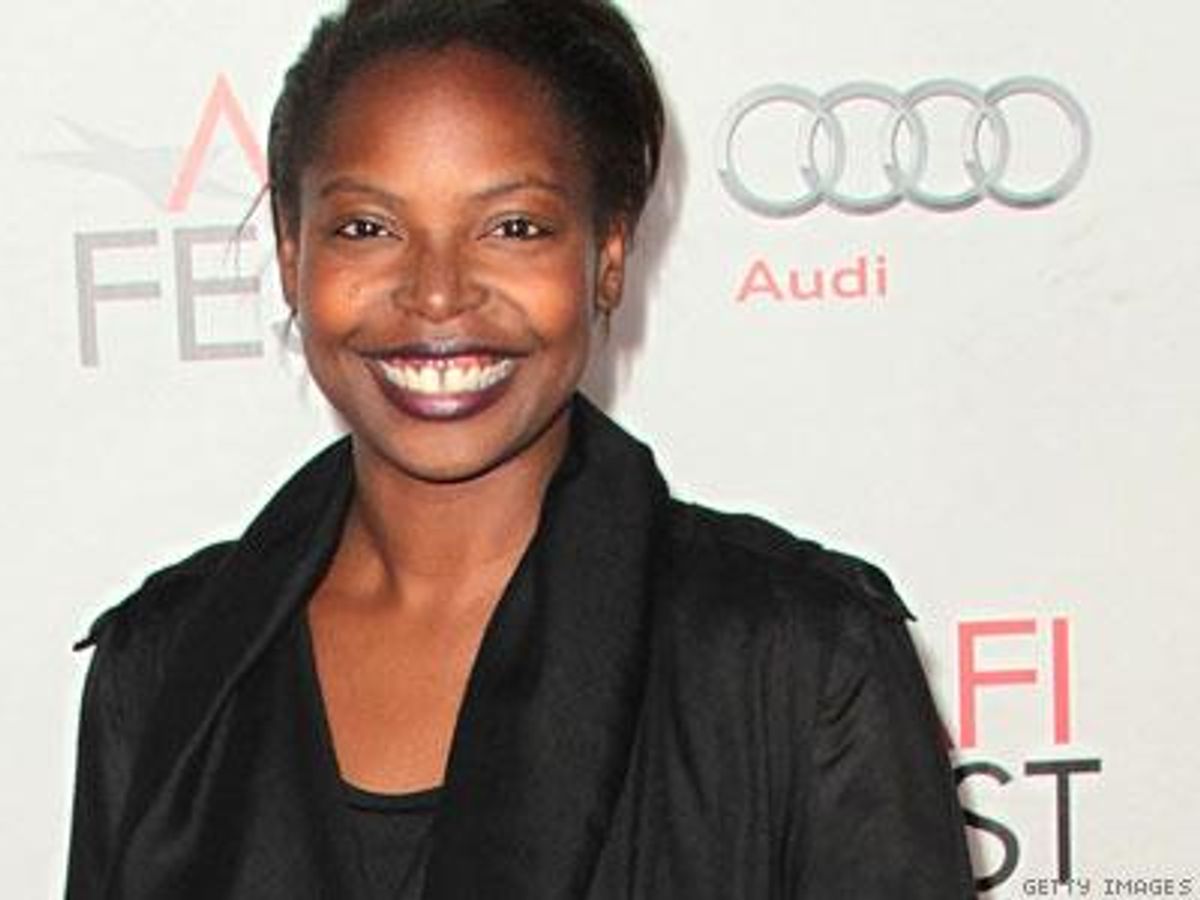






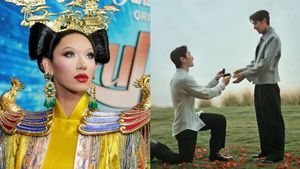

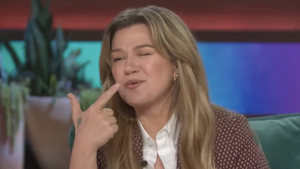



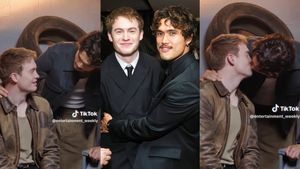


















 Out of the LGBT-themed films, which ones are you most excited about audiences seeing this year?
Out of the LGBT-themed films, which ones are you most excited about audiences seeing this year? At left: Laurence Anyways
At left: Laurence Anyways
















